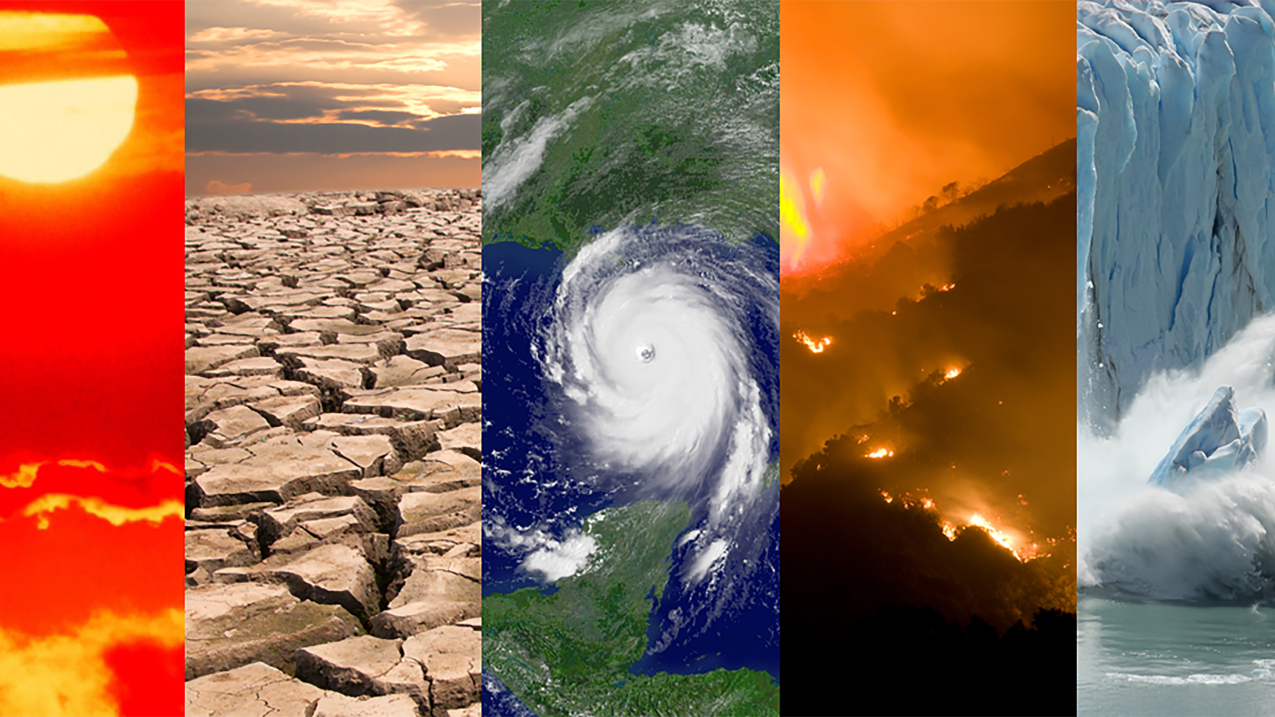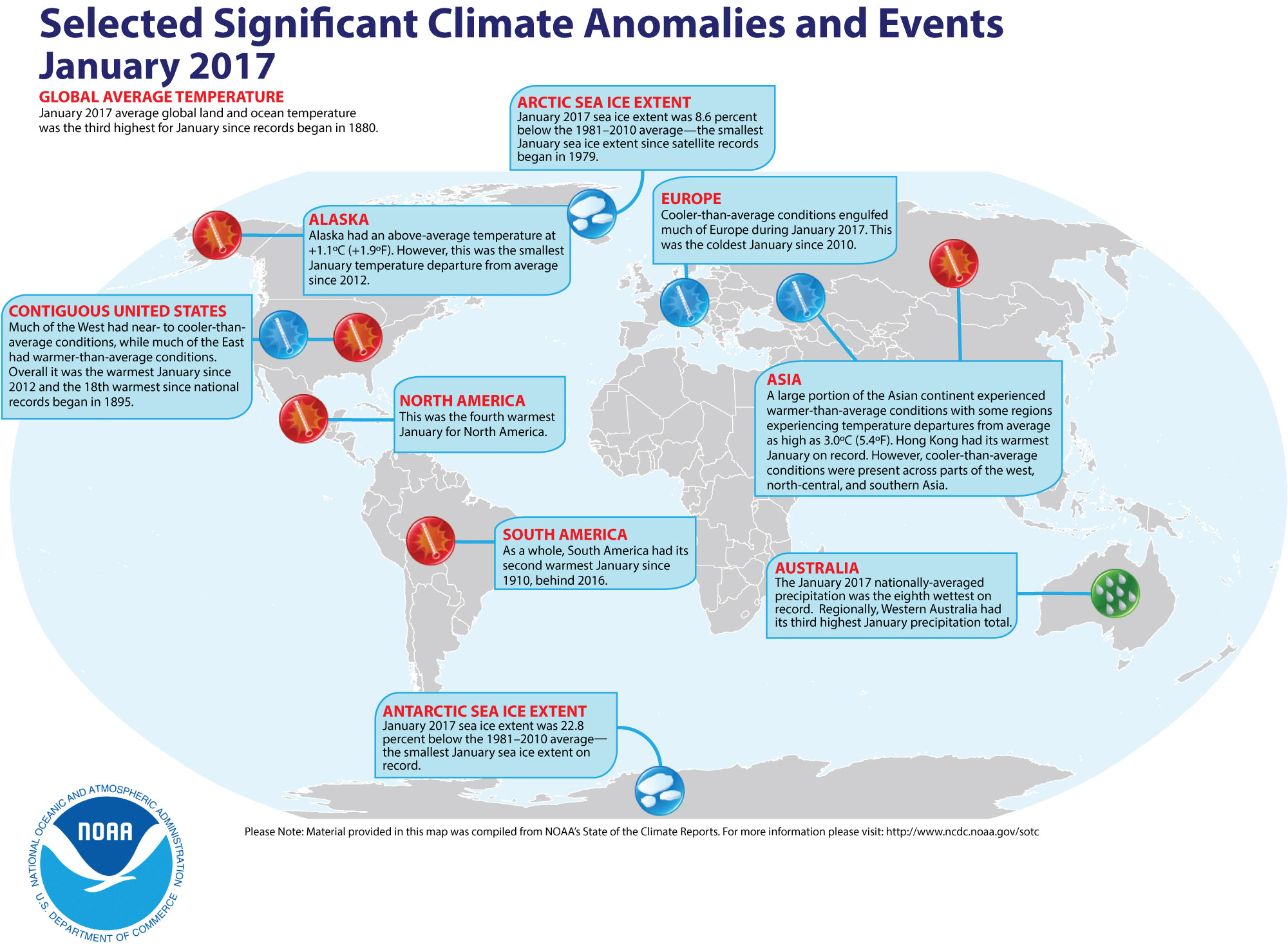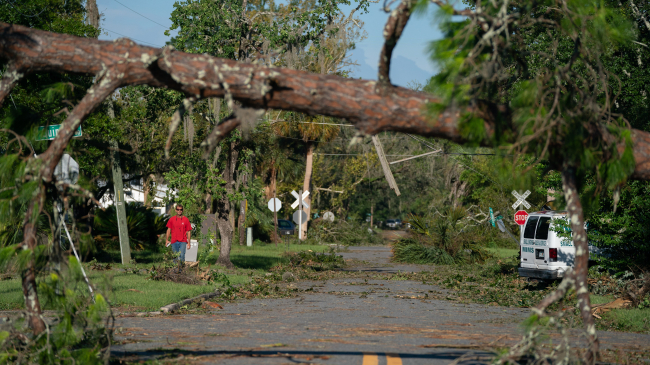Sea ice extents in Arctic, Antarctic hit record lows
If the climate records of late 2016 were any indication, January 2017’s balmy global temperatures — and record-small polar ice extents — will come as no surprise.

A collage of typical climate and weather-related events: heatwaves, drought, hurricanes, wildfires and changes in sea ice coverage. (Image credit: NOAA)





